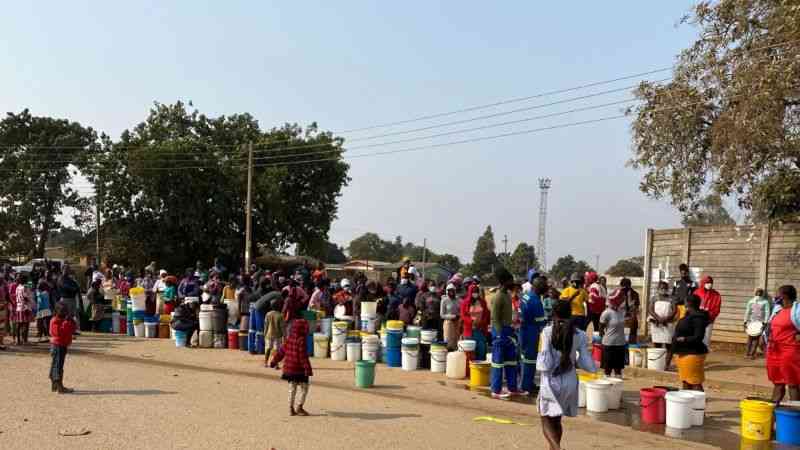
In Zimbabwe, climate change grants nobody any favours, every living being must pay.
But to women, its impact hit harder.
Women are at the centre of all climate change weather hazards recorded in the country from Cyclone Idai which made landfall in March 2019 to the ongoing prolonged droughtsravaging crops and livestock Matabeleland region.
It would be a travesty of judgment for journalists to tell the story of climate change without looking at it from a gender lens.
It is important to highlight gender issues when reporting, said Ranjitha Puskur, evidence module leader of the gender impact platform at Consultative Group on International Agricultural Research, a global network of food innovation.
“Women are dependent on natural resources for their survival. For instance, food, fuel and water.
“They are responsible for household food and nutrition security. They eat last and the least,” she said while speaking at an online cafe in mid-November.
Puskur said during droughts, it is women who bear the brunt of having to walk long distances to fetch water for the family.
- R. Kelly sentenced to 30 years in sex trafficking case
- In Full: sixteenth post-cabinet press briefing June 14, 2022
- New-look Beitbridge border impresses financiers
- Abwa commissions milk plant
Keep Reading
This is the same with firewood, she said.
“As forests disappear. They have to walk much longer to get fuel,” Puskur said.
In Zimbabwe, women constitute about 70% of household and family labour in rural communities, according to the government.
She said poverty makes it difficult for women to adapt and improve their resilience to climate change.
This is largely due to the gender gap in access to resources.
Climate shocks such as Cyclone Idai widen the gender gap.
As women’s unpaid work increases during floods or droughts, they are deprived of opportunities like education, gaining skills and pursuing economic opportunities.
Gender-based violence, child marriages, teen pregnancies and sexual exploitation increase in times of disasters.
Families in Zimbabwe often resort to marrying off their underage girls as a desperate measure when hunger bites during droughts or when crops are ravaged by tropical storms.
This is in exchange for grain or livestock, providing families with enough to eat.
Puskur said it is vital for policymakers and climate change negotiators to keep in mind women when designing responses to climate change.
“Most of the policies we look at are gender neutral. Gender neutral is being biased against women because climate change effects are not neutral and it should not be reported that way,” she said.
Portray women as climate change champions
When women are featured in climate change coverage by the media, they are often presented as victims.
Yet women play a significant role in fighting against climate change, mostly in developed countries.
What has been documented is that when provided with the same access to resources as men, said John Recha, a scientist at the International Livestock Research Institute.
“Women make up nearly half of the agricultural labour force in developing countries. Women can increase agricultural yields from their farms by between 20 to 30%. This boost in productivity not only improves total agricultural output but it also helps to reduce hunger,” he said.
He said it is important, when reporting, to be able to give some kind of sex-disaggregated data around men and women, and then give specific examples of case studies, or quotes that come from these champions, women who are among the first responders.
The same policy reforms that small and vulnerable nations are asking for are the same that women are asking for, said Joyce Chimbi, a Kenyan-based journalist.
“When you are writing gender-angled climate stories you do not have to look very far. If we look at the issue of energy, for example, and the clean energy transition. It's not possible without women. We look at issues of the carbon markets not possible without women.
She said readers are fatigued by stories that constantly show women on the receiving end.
“I believe there is a different way to show these stories. In a way that can have a lasting impact and show women at the center of climate actions, be it climate mitigations or climate adaptation actions,” said Chimbi.
At the 28th Conference of the Parties known as COP28 to the United Nations Framework Convention on Climate Change in Dubai from November 30 to December 12, there will be a whole gender day.
Chimbi said Africa's begging bowl is going to get even bigger unless women are put at the centre of climate adaptation action.
*This story was produced with support from MESHA and IDRC Eastern and Southern Africa office.







